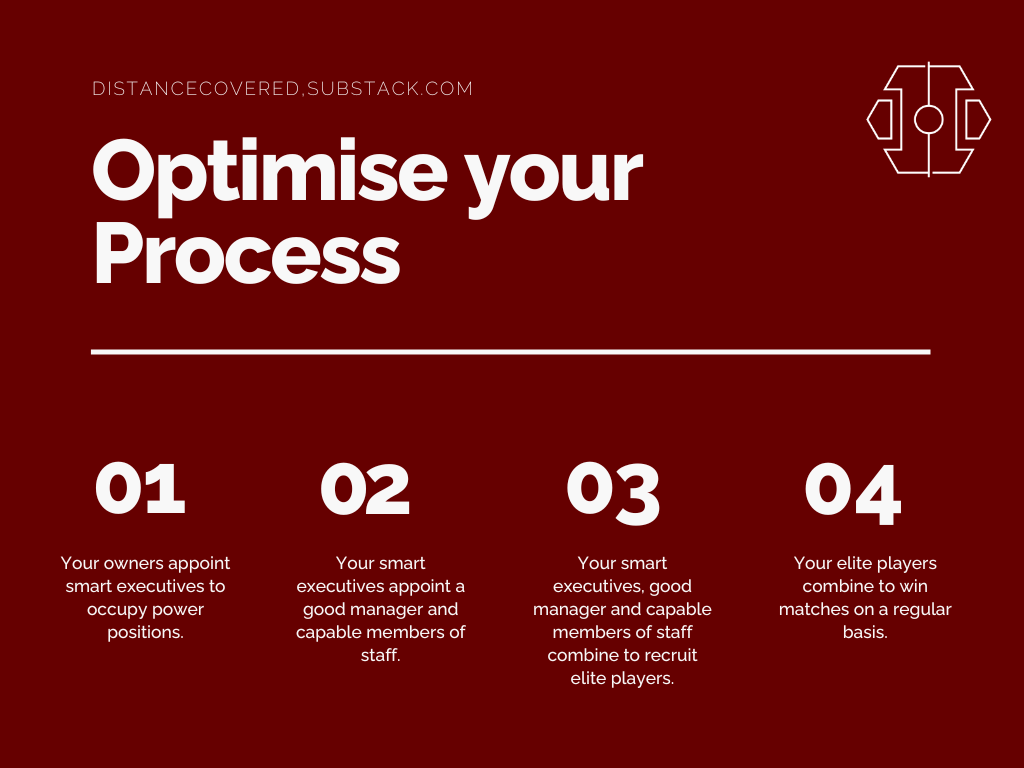Michael Edwards and Liverpool's Brain Game
This week, Michael Edwards accepted an offer from Fenway Sports Group to become their new CEO of Football.
If there’s one thing I’ve attempted to demonstrate since launching this Substack last month, it’s that your players are really important. You came for eye-opening insight, and you got it.
The single biggest lever that you can pull to improve your team’s performances — and hopefully their results — is the acquisition of really good players.
So if the individuals who kick the ball are the ones who matter the most, the people responsible for recruiting those players also have to be pretty good at their jobs for your team to grow and become successful. If you don’t know how to recruit, you’ll never get the really good players.
That is exactly why so much attention has been aimed in the direction of a certain Michael Edwards this week. The ex-Liverpool sporting director will be teaming up with Fenway Sports Group once again in the coming months, having agreed to become their new CEO of Football.
Plenty of supporters tend to shrug their shoulders when boardroom appointments are made. Edwards will never kick a ball for the Reds and we never really hear from him, so who cares? Well, this hire matters. And it matters to such an extent that we should be celebrating his arrival like he’s a £50m player.
Everybody knows that players are important, yet so often, you see owners neglecting the organisation that is required behind the scenes for good players to end up sporting their team’s jersey.
Owners are generally praised far too much for ‘showing ambition’ and splashing the cash, and nowhere near enough for getting their football operation in order. Just look at Manchester United and Everton as shining examples.
The Glazers have pumped hundreds of millions into their squad since Alex Ferguson retired over a decade ago, yet the team have continued to compete at a relatively average level.
The Champions League is regarded as Europe’s elite competition, and rightly so. When did you last think that United could actually win it, even as potential outsiders? They haven’t progressed beyond the quarter-final stage once since the days of Ferguson.
If your process is good, you don’t spend £90m on Antony. You don’t give a five-year contract to a 30-year-old version of Casemiro. You don’t appoint Ole Gunnar Solskjær on a permanent basis on the back of a short-term bounce. You don’t re-sign Cristiano Ronaldo, aged 36, because of sentiment and nostalgia.
If a scientist — or anybody capable for that matter — had the keys to Old Trafford, none of those decisions would have been made, because they weren’t clever. Instead, important questions would have been asked, and answered based on evidence.
“Hang on, will Antony actually have a £90m impact on our points total?”
“Forget about what you’ve seen from Casemiro during his prime. How might he be performing when he’s aged 32, because he’ll still have three years left on his deal?”
“I know Solskjær has won a few in a row and he knows the club really well and all that, but how exactly is he qualified to do this job?”
“If we add an ageing striker to our team who won’t defend, how might that impact our tactical approach, and what about Edinson Cavani, who is literally having his lunch downstairs?”
As for the Blues, Farhad Moshiri arrived on Merseyside with billions in his pocket, but he didn’t have a clue how to spend it. Cenk Tosun, Michael Keane, Yannick Bolasie, Oumar Niasse. The list of vanilla players bought for hefty transfer fees is endless at Goodison Park, and every season, relegation looms.
Liverpool’s two fiercest rivals haven’t struggled due to a lack of investment, but instead a lack of expertise. The deals they have made in recent years suggest they simply don’t know what they are doing in the market. The players aren’t good enough, and that’s because the guys responsible for buying them aren’t, either.
FSG, for all of the criticism they receive for disappearing whenever the next round of drinks is supposed to be on them, have proved to be very capable of setting up an proper structure behind the scenes.
The American owners recognise the value in getting your house in order, and they showcased that at the very beginning. Shortly after their takeover in 2010, they appointed Damien Comolli, who was regarded as a numbers guy, as their sporting director.
Keep reading with a 7-day free trial
Subscribe to Distance Covered to keep reading this post and get 7 days of free access to the full post archives.






